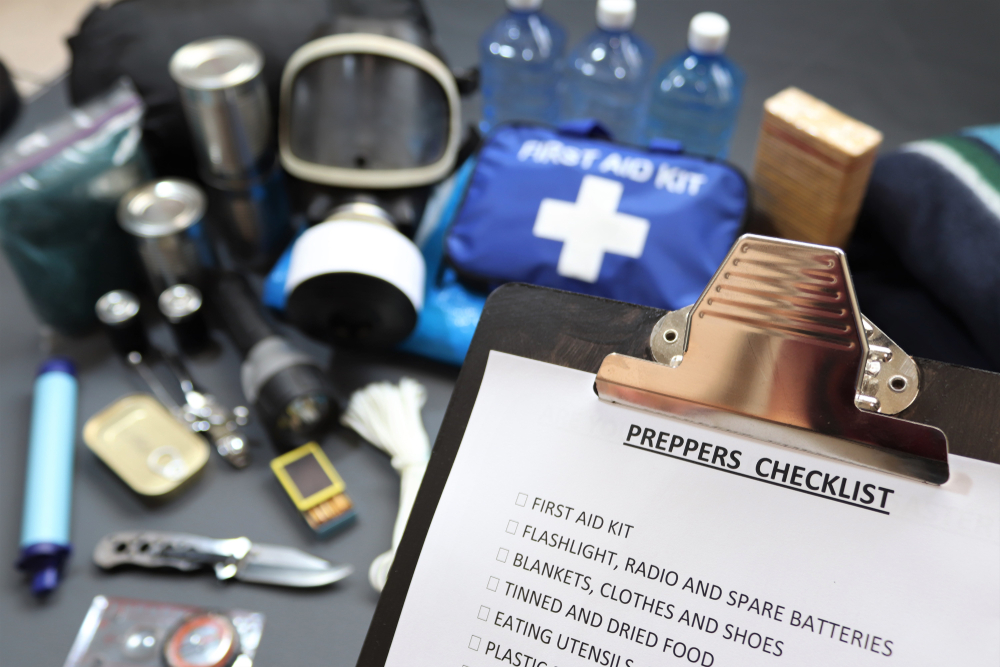It’s been demonstrated time and time again that in the face of any disaster, a healthy mental state is perhaps the single most important key to personal survival.
When and if SHTF, many people are likely to succumb to fear, depression, anxiety, hopelessness, despair, paranoia – the list goes on…
How do you guard yourself against the deterioration of morale in the duration of an extremely challenging ordeal – one which could easily cause the average human to give up or lose his or her wits?
If surrounded by death, destruction and the loss of almost everything you held dear, how do you cope – especially if the crisis drags on for months, or even years?
It’s impossible to predict exactly what challenges you will be forced to endure, but the shock of having one’s life turned upside down is enough to test anyone’s resolve. You might, for instance, find yourself in such deep despair that life seems hardly worth living, especially if you have to witness the deaths of others – perhaps even someone close to you.
You may find yourself feeling isolated or fearful – or you may simply find it very difficult to accept the realization that things will never return to “normal”. Even dealing with boredom may be an issue – especially for children. Without all the distractions and sources of entertainment we take for granted, daily life may seem quite tedious once things settle after the initial collapse.
Is there anything you can do now to prepare yourself and your family for the inevitable psychological strain that a prolonged disaster scenario will bring?
If we examine the strategies others have used to “keep their chins up” during extreme crisis situations, a few basic common factors become apparent. Some of these may seem rather obvious or even insignificant, but all are worth considering (and reconsidering) in advance.
When dealing with prolonged privation and hardship, little things can mean a lot and a small amount of preparation can prove to be crucial to maintaining a sense of well-being and overall mental health. Here are five strategies which will help you and your family get through even the hardest of times.
Creature Comforts
When most of us prepare our bug-out bags and stockpiles, we inevitably think in terms of the basics needed for mere survival. Of course, it’s crucial to have the essentials covered – nonperishable food supplies, water, weapons, etc. – but it’s also important to have non-essential things on hand which help maintain a sense of normalcy and provide small pleasure.
A small piece of candy, for instance, will be a welcome daily addition to whatever boring staple foods you may be forced to eat on a regular basis.
Diversions
If the grid goes down and you don’t have a way of generating electricity, most of our modern day electronic entertainment options will no longer be available.
Books, games, cards, puzzles – anything that doesn’t require power and which provides a way to pass the hours while diverting attention from grim realities will be much appreciated by the entire family – especially the kids.
Exercise
One of the best ways to fight depression and anxiety is through daily exercise. Strenuous exercise releases endorphins into the body’s system – endorphins are the body’s natural painkillers and they have an anti-depressant effect on our psyches, as well. And of course, the physical benefits of daily exercise are important as well. Surviving a crisis requires both a sound body and mind.
Daily Routines
Maintaining one’s sanity in traumatic circumstances requires preserving a sense of normalcy. People forced to endure extreme hardships – such as prisoners of war – have often found that sticking to one small daily routine helped them to stay sane and focused on survival.
Routines such as daily shaving for men or applying makeup for women may seem unnecessary (or even absurd) in a disaster situation, but these seemingly trivial acts can have real benefits regarding one’s mental health and well-being.
Service To Others
This is perhaps the most important key to maintaining one’s morale and sense of purpose in a crisis. As the saying goes: “Virtue is its own reward.” Selfless dedication to helping others has consistently proven to be one of the most effective means of fighting depression and despair. It’s the cornerstone of most spiritual doctrines, but even if you’re not a fan of organized religions you are sure to find that service to humanity is the secret to happiness.
Giving assistance to someone worse off than yourself will restore your perspective and give you the strength to carry on. And when TSHTF, there’s sure to be no shortage of opportunities to do so.
What would be your morale boosting strategy in a disaster scenario?
This article has been written by James Armstrong for Survivopedia.









Pingback:I.N.C.H. Survival Gear | 5 Morale Boosting Strategies To Survive Crisis | July 16, 2014
|
Sydney Moreno | July 16, 2014
|
This story kind of reminds me of what you learn in the book ‘Nine Meal To Anarchy’ by Farrell Kingsley. This is a very good book and even though it is fictional it educates you in a good way from helping people to daily routines and just about everything this article talks about.
Pingback:Prepper News Watch for July 17, 2014 | The Preparedness Podcast | July 17, 2014
|